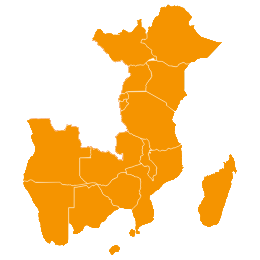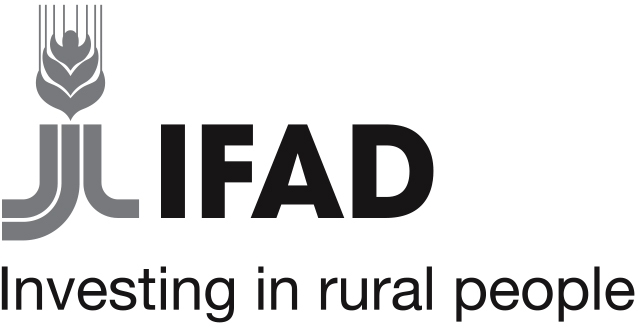Using ICT to share innovative agricultural technology in Tanzania
"The project had a positive impact on individual beneficiaries, giving an increased sense of self-confidence and increased respect from others."
BACKGROUND
Small-scale farmers in Tanzania have limited access to information. As a result, they lack access to markets and are less able to take up emerging agricultural technologies that could improve productivity and incomes.
WHAT’S INVOLVED
A scalable solution for rural outreach
Using a combination of ICT technologies – SMS call-in mobile services and a series of interactive broadcasts from partner radio stations, the project was able to share information in a cost-effective way with a large number of people.
Value-chain integration
Being better informed and connected, farmers were increasingly connected with value chains and able to participate in marketing and enterprise opportunities.
Knowledge-sharing
Selected agricultural technologies were promoted through the ICT services, encouraging the uptake of methods that increased production volumes and productivity.
EXPLORE THIS SOLUTION
The ICT scale-up project can offer
- Proven methods for combining technologies in large-scale information distribution
- Experience running a multi-channel on-demand information service for rural communities

Countries involved
Ethiopia, Ghana, Malawi, Mozambique, Senegal, and Tanzania
Project partners
IFAD and Farm Radio International
Project dates
2015 - 2018
Share this solution
Bookmark this solution
BookmarkShow Full Solution
Summary
Information and communications technologies (ICTs) can enhance agricultural development programmes in many ways. Using radio and SMS, information was shared with 2 million Tanzanian farmers to help accelerate the adoption of new and innovative agricultural technologies and create stronger connections with value chains. The aim was to help meet yield goals, complementing and extending the reach and impact of agriculture extension services in a cost-effective way.
Challenge
Poverty in Tanzania is greatest in rural areas in families who depend exclusively on livestock and food crop production, which lacks modernisation and support. Limited access to information is a key barrier for smallholder farmers due to generally weak quality of extension service and outreach. This deprives them of productivity and integration with markets.
Solution
Farm Radio International (FRI) designed a project to maximize the reach, use and effectiveness of key agricultural information in Tanzania. ICT solutions in the form of SMS call-in services (SMS, voice messaging and a virtual helpline) and interactive radio broadcasts were used to deliver and exchange information with smallholder farmers, farmer organizations and agribusinesses.
The integrated radio and agri-mobile service promoted the uptake of selected emerging agricultural technologies and marketing systems.
Five radio stations regularly produce quality participatory farm radio programmes. Radio reaches areas other extension services cannot, in familiar languages and at a low cost. In Tanzania, radio ownership is around 85 per cent and mobile phone subscriptions have grown from 32 per cent in 2008 to 83 per cent in 2016.
FRI built on its existing evidence-based Participatory Radio Campaign (PRC) approach, integrating it with an agri-mobile service based on CABI’s Direct2Farm (D2F) model (developed in India).
A PRC is a carefully designed radio series, broadcast to a specific farming population, over a specific period of time, which helps farmers mobilize to adopt a specific farming practice. D2F is a database that supports agri-mobile service aimed at making high quality information readily accessible to farmers.
The project was set up to reach 1 million farmers via radio and SMS, with the expectation that at least 150,000 people would try out new or improved practices as a result of the service.
Project teams worked with District Agriculture Offices and extension workers, while leveraging and strengthening existing links at local and district level.
The project supported improved access to markets for farmers, enhancing food security and improving socio-economic welfare for small and medium-scale producers. Through its focus on innovation, knowledge management and sharing information, it helped develop stronger linkages between smallholder farmers and rural producers and their wider value chains.
Results
The project has improved access to productivity-enhancing technologies and services for approximately two million smallholder farmers. By linking appropriate ICT services, it delivered consistent, validated and localized information, which also helped farmers in taking informed decisions.
It has contributed to the country-wide ICT policy which aims to transform Tanzania into a hub of ICT infrastructure and ICT solutions that enhance sustainable socio-economic development and accelerated poverty reduction, both nationally and globally.
Agricultural production and productivity have been increased by scaling up the use of productivity-enhancing innovations and marketing mechanisms among small-scale farmers.
There is increased access to markets and opportunities for rural enterprise, thanks to the strengthening of links along the supply chain and provision of simple localised marketing information.
The implementation of the project had a positive impact on individual beneficiaries, giving an increased sense of self-confidence and increased respect from others in their community.
Lessons learned and potential for replication
A number of lessons emerge after the implementation of the project:
- Without financial and organizational sustainability, services cannot continue to scale beyond their grant period. Yet, we rarely measure progress toward sustainability. This project can be scaled up by increasing the number of radio station partners and attracting the private sector. There is good potential for developing large-scale impact and sustainability.
- Participation of women needs to be increased as very few female-headed households received extension and advisory services. The difference is statistically significant.
- Quantitative survey data showed that radio was the most influential source of information for most respondents, even above that of agricultural extension workers and family/neighbours.
- Projects should be evaluated on not only how many farmers are reached and are applying one of the target technologies, but also on progress toward scaling services that are financially sustainable and not donor dependent.
Solution Document Downloads
Last update: 10/01/2019


